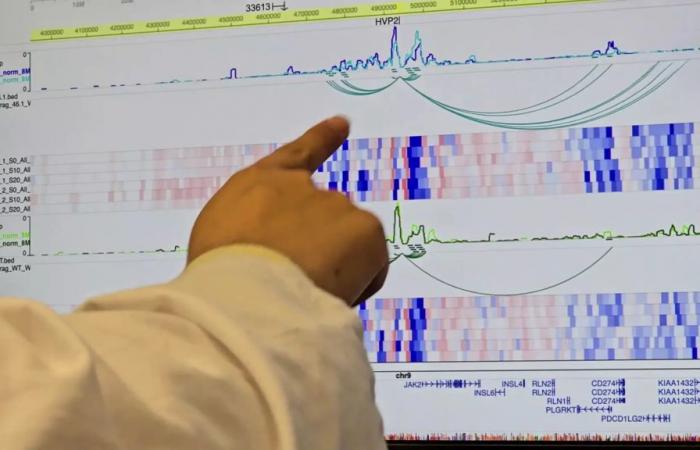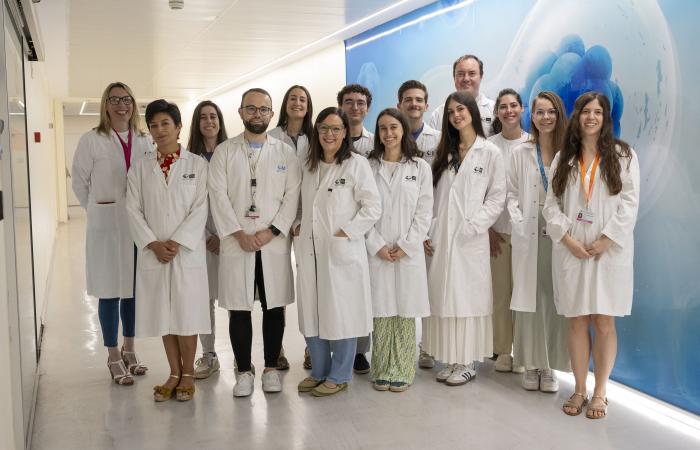The increase in PD-L1 protein is like the main detonator to develop a group of rare tumor diseases that affect blood. This is the finding discovered by the investigation led by the 12 de Octubre Hospital in collaboration with the Severo Ochoa Molecular Biology Center. Although it was discovered more than a decade ago that a genetic variation is behind almost 30% of cases, so far it was unknown what was the mechanism that made the disease progress. The results of the investigation make it possible to study The use of drugs that inhibit this protein to treat these diseases or to stop others such as leukemia.
These types of diseases are chronic myeloproliferative neoplasms, which They affect the production of bone marrow cells. This category includes types such as chronic myeloid leukemia or essential thrombocythemia, among others. A large percentage of these conditions is produced by the presence of the genetic variant Haplootype 46/1 of Jak2, present in 50% of the population. In a small group of these people, two cases per 100,000 inhabitants, cancer cells that cause these complications arise.
Although specialists already knew that this genetic variation was one of the risk factors, They failed to explain what the development of the disease detonates. October 12 research now reveals that people with this mutation also have an increase in PD-L1 protein, which slows the immune system response. This causes tumor cells to proliferate in the organism and that evolution evolutions evolutions accelerated.
“We saw that the population that has that gene had increased the PD-L1. This protein acts as a brake on immune responses of the body. This means that, if you have acquired the characteristic mutations of myeloproliferative neoplasia, the disease progresses more quickly or more frequently, “explained the hematologist, a researcher at the 12 de Octubre Hospital and principal researcher and labor author The JAK2 46/1 haplotype influences PD-L1 expression, Posted in Blood magazine, Gonzalo Carreño.
Although the results of the study must be validated, new lines of research are opened to treat these tumor diseases of blood with existing drugs that inhibit protein. “Managed in early stages, we would stop the progression, we would improve the prognosis And the quality of life of patients, we would reduce the symptoms and complications of the disease, “Carreño has detailed. The initial stages of these diseases generate few symptoms and usually take years to progress to terminal phases such as acute leukemia, so early treatment represents a great therapeutic advance.
For his part, the researcher at the Severo Ochoa Molecular Biology Center and one of the study authors, Dr. Miguel Manzanares, stressed that “This work is an example of how basic research in molecular biology can have a direct impact In the understanding and possible treatment of human diseases. “He also stressed that the results have not only explained the clinical risks of these diseases, but also allow to create new therapeutic perspectives.

Researchers warn that it will be necessary validate these results in animal models and clinical trials before incorporating these treatments into the usual clinical practice. For Dr. Carreño “we are facing a great advance in the knowledge of why these diseases occur and, above all, given an opportunity to look for new therapeutic targets in these patients.”







